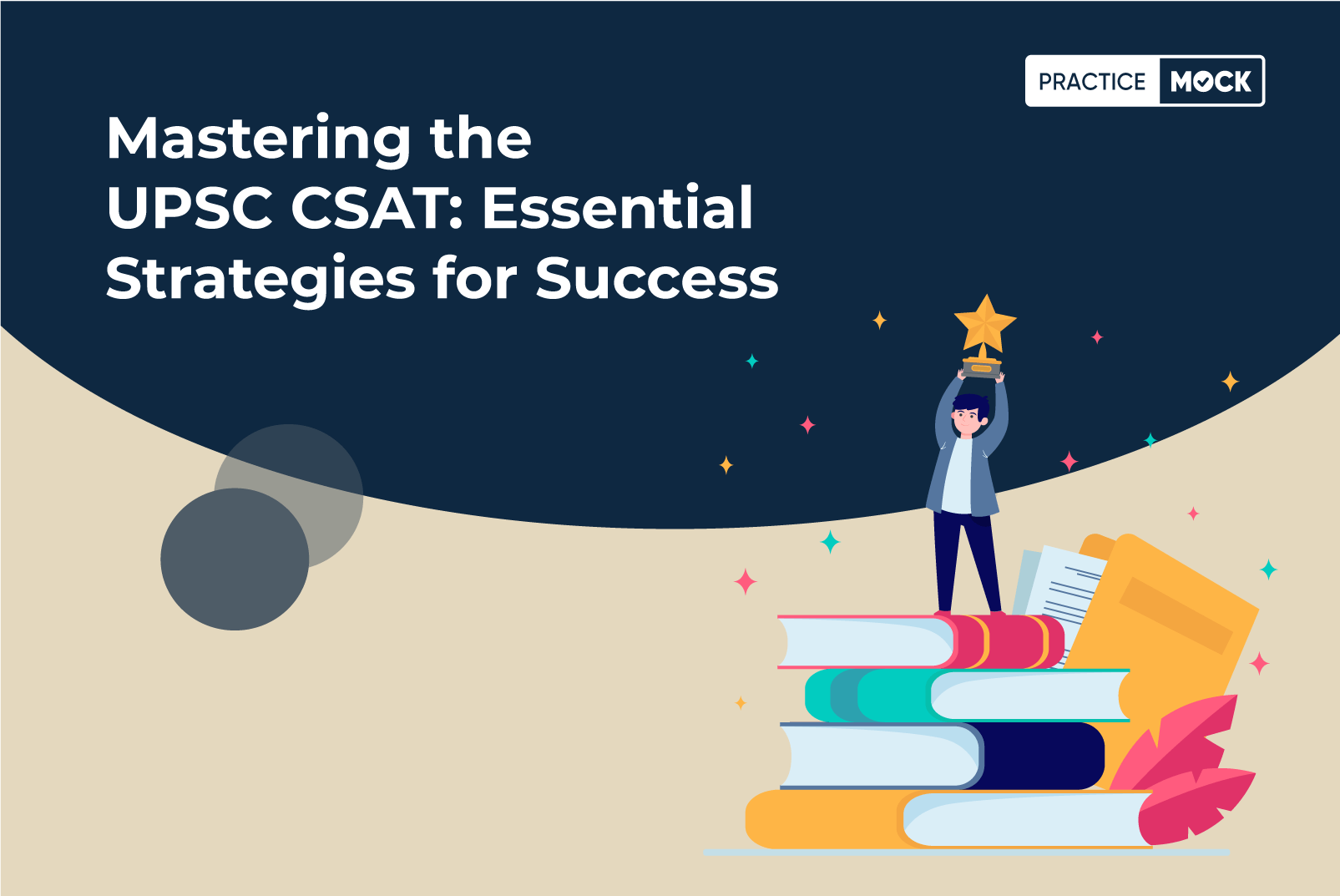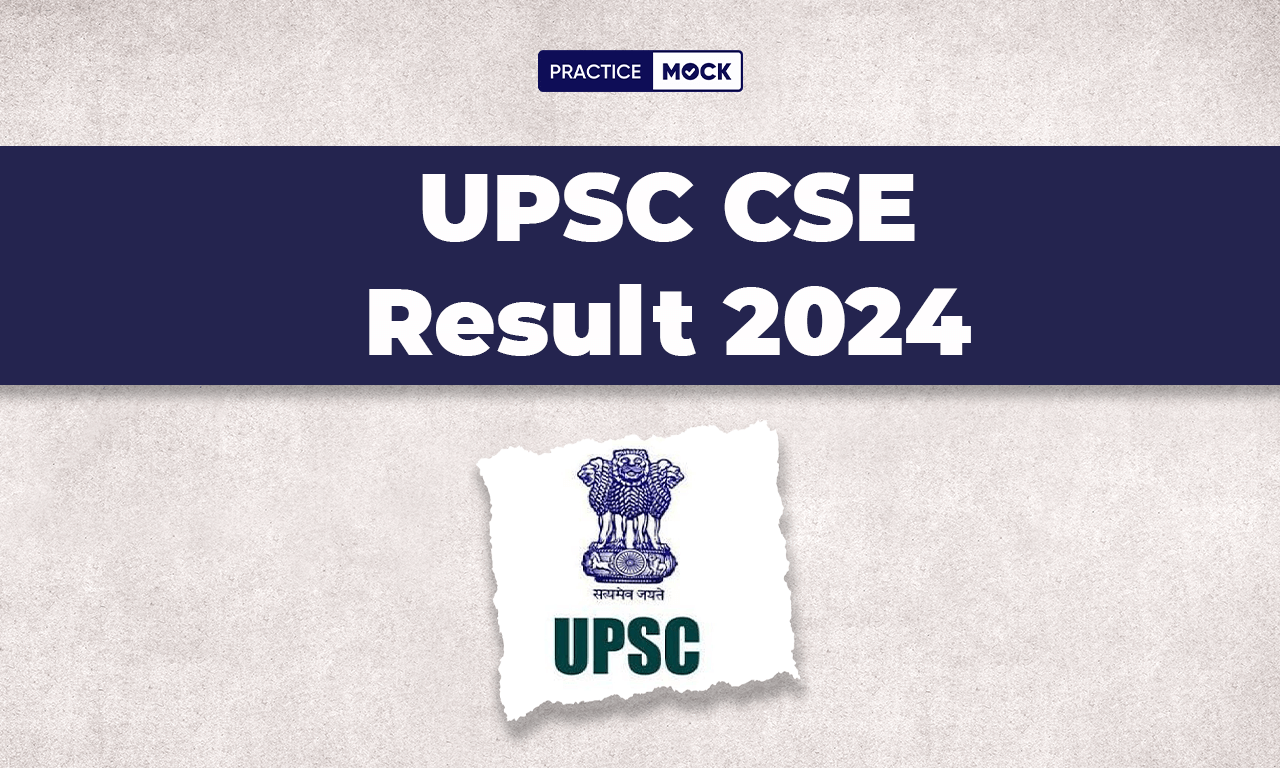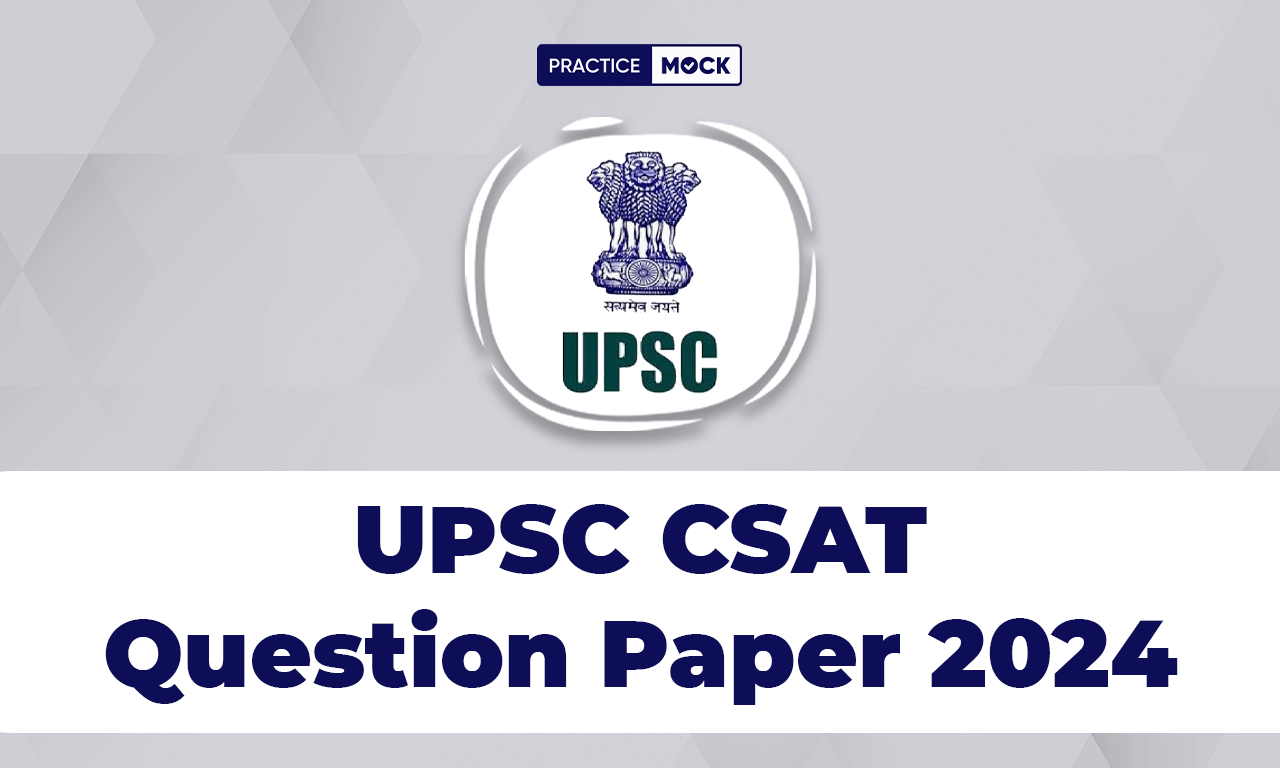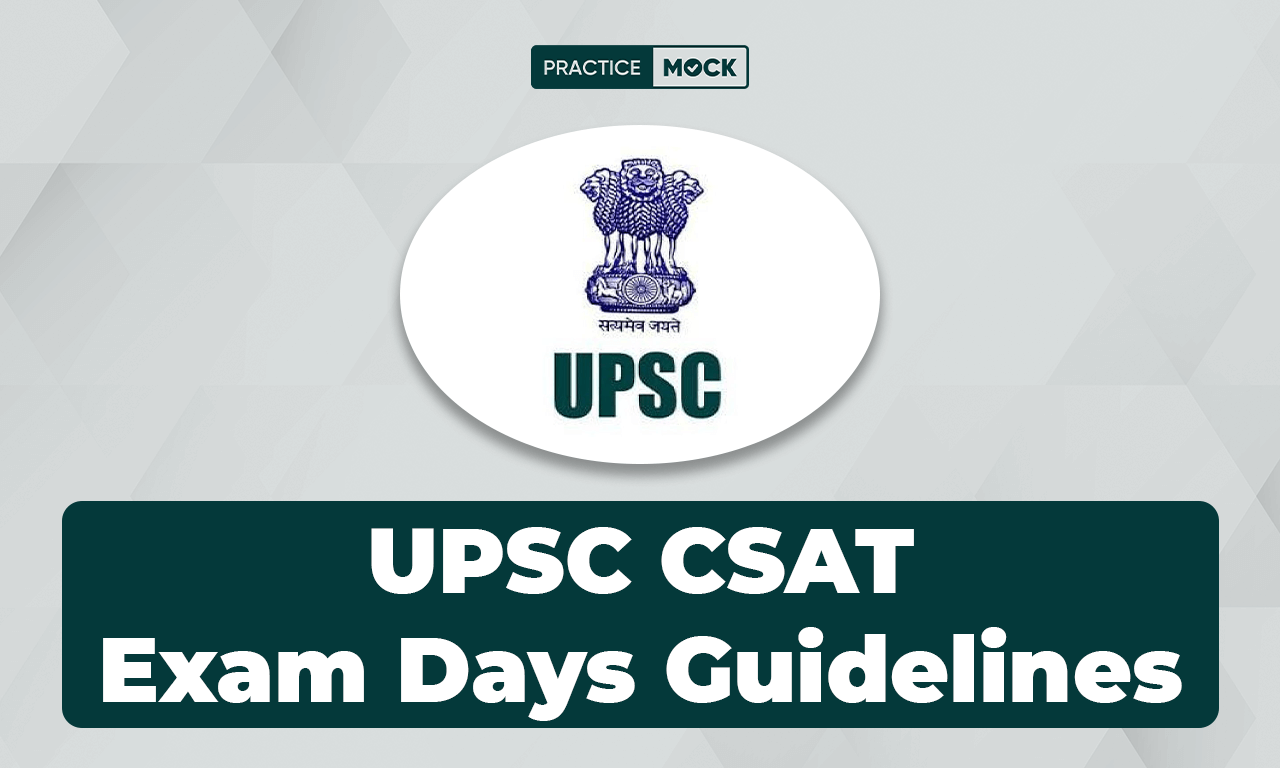Mastering the UPSC CSAT: Essential Strategies for Success


The Union Public Service Commission (UPSC) examination is widely regarded as one of the toughest competitive exams in India. It serves as a gateway to prestigious positions in the civil services, including the Indian Administrative Service (IAS), Indian Foreign Service (IFS), and Indian Police Service (IPS), among others. With its vast syllabus and rigorous selection process, cracking the UPSC CSAT 2024 exam requires meticulous planning, dedicated preparation, and a strategic approach. In this comprehensive guide, we will delve into the essential components necessary for mastering the UPSC examination, covering everything from exam pattern and syllabus to preparation strategies and time management techniques. Whether you’re a seasoned aspirant or a newcomer embarking on this challenging journey, these UPSC essentials will serve as your roadmap to success.
Hurry Up! Sign Up & Grab UPSC CSAT 2024 FREE Mock Test🏃♀️
Understanding the UPSC Examination:
The UPSC examination comprises three stages: the Preliminary Examination (Prelims), the Main Examination (Mains), and the Personality Test (Interview). Each stage assesses candidates on different parameters, testing their knowledge, aptitude, and personality traits. The Prelims consist of two objective-type papers – General Studies Paper I and CSAT (Civil Services Aptitude Test) Paper II – while the Mains include nine subjective papers covering various subjects such as essay, General Studies, and optional subjects. The Personality Test, also known as the Interview, evaluates candidates’ personality, communication skills, and suitability for a career in the civil services.
Take UPSC CSAT FREE Mock Test & Analyze Your Performance💯
Essential Study Material and Resources:
Gathering the right study material is crucial for effective UPSC preparation. Aspirants should focus on quality rather than quantity, choosing standard textbooks, reference books, and online resources recommended by experts and previous toppers. NCERT books are highly recommended for building a strong foundation in subjects like History, Geography, Polity, and Economics. Additionally, aspirants should refer to newspapers like The Hindu and magazines like Yojana and Kurukshetra for current affairs and analysis.
Strategic Planning and Time Management:
Creating a well-structured study plan is essential for covering the vast UPSC syllabus effectively. Aspirants should allocate sufficient time to each subject and topic based on their strengths and weaknesses. A balanced approach, focusing on both static and dynamic portions of the syllabus, is crucial. Regular revision and mock tests should be integrated into the study plan to assess progress and identify areas for improvement. Time management techniques such as the Pomodoro Technique can help aspirants maintain focus and productivity during study sessions.
Sign Up & Grab UPSC CSAT Free Mock Test & Improve Your Performance 10 Times⌛
Effective Revision Strategies:
Revision is the key to retaining information and reinforcing concepts learned during the UPSC preparation. Aspirants should adopt smart revision strategies, including making concise notes, mind maps for quick revision. Prioritizing topics based on their weightage in the exam and focusing on high-scoring areas can maximize revision efficiency. Regularly revisiting previously covered topics and solving UPSC CSAT Previous year papers are also integral parts of the revision process.
PracticeMock Mock Tests:
Practice is paramount for success in the UPSC CSAT examination. Aspirants should solve a diverse range of practice questions, including multiple-choice questions (MCQs), subjective questions, and case studies, to develop problem-solving skills and time management abilities. PracticeMock Mock tests are valuable tools for simulating the exam environment and assessing preparedness. Aspirants should attempt full-length mock tests regularly and analyze their performance to identify strengths and weaknesses.
Essay Writing and Answer Writing Practice:
Essay writing is an integral part of the UPSC Mains examination. Aspirants should practice writing essays on a variety of topics, covering social, economic, political, and philosophical themes. Developing a coherent and structured approach to essay writing, focusing on clarity, logical flow, and originality of ideas, is essential. Similarly, answer writing practice for Mains papers is crucial for mastering the art of concise and effective expression.
Sign Up for UPSC CSAT FREE M🤩ck Test
Current Affairs and Contemporary Issues:
Staying updated with current affairs and contemporary issues is imperative for success in the UPSC examination. Aspirants should develop a habit of daily news reading and analysis, covering national and international events, government policies, and socio-economic developments. Integrating current affairs into study notes and essay writing practice ensures relevance and depth of understanding.
Take UPSC CSAT FREE Mock Test & Analyze Your Performance💯
Revision Techniques for Optional Subjects:
For subjects with optional papers in the UPSC Mains examination, aspirants should adopt specialized revision techniques. Reviewing previous year question papers and analyzing trends can provide insights into the exam pattern and important topics. Creating topic-wise notes, flowcharts, and mnemonic devices can aid in memorization and conceptual clarity. Additionally, joining optional subject-specific study groups or online forums for discussion and peer learning can enhance understanding and retention.
Balancing Preparation with Health and Well-being:
Maintaining physical and mental well-being is crucial during the UPSC preparation journey. Aspirants should prioritize self-care activities such as regular exercise, meditation, and sufficient sleep to manage stress and stay focused. Balancing study hours with leisure activities and hobbies can prevent burnout and maintain motivation levels. Seeking support from family, friends, and mentors can provide emotional encouragement and perspective during challenging times.
Hurry Up! Sign Up & Grab UPSC CSAT 2024 FREE Mock Test🏃♀️
Conclusion:
Mastering the UPSC CSAT 2024 examination requires a holistic approach encompassing diligent preparation, strategic planning, and disciplined execution. By understanding the exam pattern, leveraging effective study material, and adopting smart revision strategies, aspirants can navigate through the UPSC journey with confidence and competence. Remember, success in the UPSC examination is not merely about academic prowess but also about perseverance, resilience, and adaptability. With determination and dedication, achieving your dream of serving the nation through the civil services is within reach.
Recent Posts
SSC CGL Question Paper Free PDF Based On Previous Year
This blog has provided the SSC CGL Question Paper Free PDF Based On Previous Year.…
How to Choose the Right Course for RBI Grade B Exam Preparation
Confused about RBI Grade B prep courses? Discover 5 smart tips to choose the best…
IBPS RRB Clerk 2025 Quant Important Questions, Download Free PDF
In this article we are providing the IBPS RRB Clerk 2025 Quant Important Questions. candidate…
Habits That Helped RBI Grade B Toppers Succeed
RBI Grade B toppers share the habits that helped them succeed. Master these simple routines…
Who Earns More, an RBI or IAS?
Learn the real difference in RBI and IAS salaries. A clear, honest comparison to help…
SSC CGL 2025 Study Plan for Working Professionals
In this blog, we have provided the SSC CGL 2025 Study Plan for Working Professionals.…


